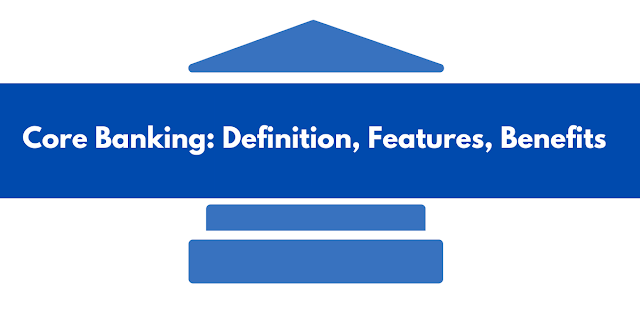Core Banking: Definition, Features, Benefits
Core Banking is a catch-all phrase for the services offered by various interconnected bank locations. It's the bank's back end, where deposits, loans, and credits are processed daily throughout all branches, and any changes are recorded and reflected instantly. The bank's core business is serving individual and small company clients.
It helps clients deal with money transfers rapidly. In addition, changes made to a customer's account are published instantly. The goal is to give current and future clients more control over their financial independence.
Features of Core Banking
The various CBS locations are all linked together. Clients can, therefore, use the services of any CBS branch. Core banking's most notable characteristics are:
- Administrative and operational data consolidation
- Create fresh bank accounts
- Handling money orders and checks
- Interest computation
- Managing interactions with customers
- Loan servicing and production
- Handling transactions involving actual money
- Transaction processing for paying clients
Advantages of Core Banking
Now that we know how the major banking platforms function and what they offer, let's have a look at some of their most attractive features and advantages:
Better results in less time
Core banking platforms expedite communication with multiple locations, which improves operational efficiency. As a result, financial institutions can complete their customers' transactions more quickly, regardless of location.
Enhanced Security
Central banking systems employ sophisticated cryptographic modules to ward off intruders and malware. Client-side bio-verification and two-factor authentication additionally give the platform an extra degree of protection. These additions facilitate KYC compliance and other regulatory requirements for financial institutions.
24/7 access to baking services
Now that contactless payments are the norm, it's more important than ever to have 24/7 access to banking services. Given that the primary banking infrastructure is always online, customers can handle their banking needs regardless of where they happen to be at the moment. Moreover, customers can always get in touch with help to answer their questions.
Reduced operational cost
Because they require fewer people to run, banks can rely on their core platforms to save money on overhead. Further, the AI-driven infrastructure quickens the pace at which tasks are completed and lessens the likelihood of human error in record-keeping.
Transact in multiple currencies
Users can instantly trade in numerous currencies without making significant currency exchanges.

